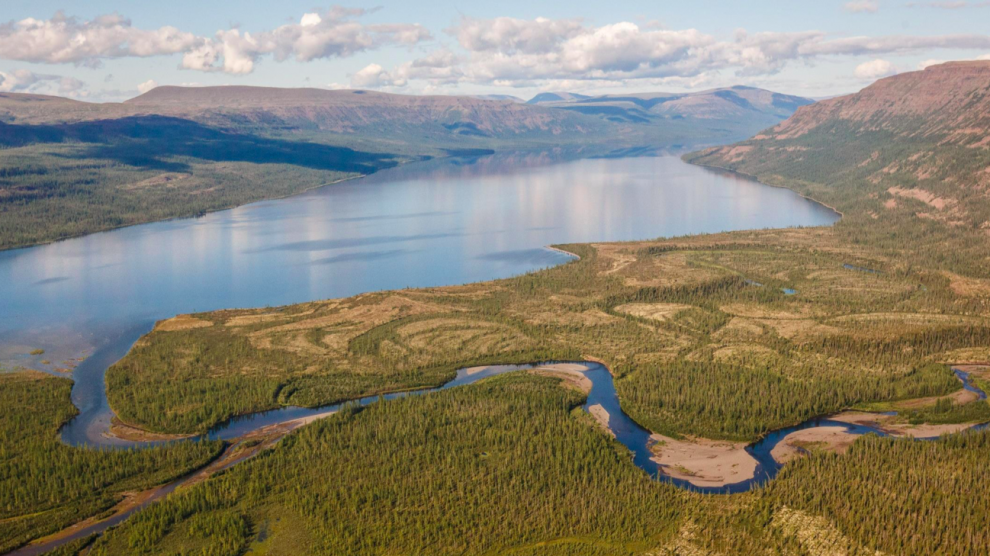It’s been a good year for Russia’s Norilsk Nickel (Nornickel), despite the challenges posed by the Covid-19 pandemic, and a diesel fuel leakage accident in May.
Despite setbacks such as the Covid-19 pandemic and a major fuel spill, Norilsk Nickel (Nornickel) the world’s largest producer of palladium and high-grade nickel remains, according to company president Vladimir Potanin, a financially stable company.
“The financial stability of the company was confirmed by investment grade credit ratings from all three major global rating agencies,” he says.
According to the company’s latest annual report, consolidated revenue increased 15 per cent compared to 2019, to 15.5 billion US dollars (12.8 billion euros) owing to higher prices of palladium and rhodium, as well as the ramp up of the firm’s Bystrinsky project, the largest ever greenfield investment in the Russian metals industry.
- Nornickel digitalises transaction process, making metal provenance transparent
- Mining companies need to adopt ESG principles
- Mining or indigenous rights: Does it have to be one or the other?
Norilsk Nickel’s EBITDA fell by three per cent however, owing mostly to a two billion US dollars (1.6 billion euros) fine the company was ordered to pay by Russian courts, as well as Covid-19 containment measures and an increase in inventory of saleable metals.
Still, Mr Potanin says the company delivered “strong financial results” in 2020.
“Our company faced a number of major challenges that required a maximum effort from all employees, and I want to emphasise that we have managed to overcome them,” he adds.
Clean-up
While authorities and environmentalists have called the May 2020 fuel spill near the city of Norilsk in Siberia the worst ecological incident in the Arctic, Nornickel says that it has now started a comprehensive clean-up operation in cooperation with all stakeholders, following the recommendations of the Great Norilsk Expedition, organised by the Russian Academy of Sciences with support from firm.
“The company has drawn an important lesson from this incident and has dramatically reviewed its approach to environmental risk management, water stewardship, biodiversity restoration and climate change, having set specific targets in each of these areas,” says Mr Potanin.
This focus on environmental risk management is part of the company’s ongoing commitment to environmental, social and corporate governance (ESG) principles and the ESG strategy that the firm unveiled in 2020.
Sergey Dyachenko, chief operating officer at Nornickel, notes that the company’s policies so far have resulted in a 75 per cent decrease in injury frequency rate.
“We also managed to reduce the total number of accidents and injuries in the company by 72 per cent from 2013,” he adds.
As part of the same strategy, Nornickel reduced Scope 1 and 2 (direct and indirect) greenhouse gas emissions to just under 10 megatonnes in 2020.
“Maintaining this very low and highly competitive footprint while growing metal production by 25 to 30 per cent is our 2030 strategic objective,” says Andrey Bougrov, senior VP of sustainable development.
Reducing emissions
In December last year, as part of its environmental strategy and a sulphur programme aimed at reducing emissions, the company shut down a smelter in the Kola peninsula (Kola GMK) which resulted in the complete elimination of sulphur dioxide emissions in the cross-border area with Norway.
According to the company’s report, alongside other activities this should enable a reduction of sulphur dioxide (SO2) emissions in the Murmansk region by 85 per cent by the end of 2021. A further reduction in SO2 emissions is expected when the company shuts down a copper refinery line in the first half of 2021.
Nornickel says that it is also reworking its bonus and incentive structure in line with EGS key performance indicators (KPIs).
“We have added environmental related KPIs already this year and in particular 20 per cent of the bonuses are linked to the rate of environmental incidents. In addition, we’re considering adding several climate change related KPIs to our long-term incentives scheme,” adds Mr Bougrov.
Looking to the future, the company is preparing several projects to help it reduce the use of high-carbon footprint fossil fuels.
“We’re looking to gradually replace diesel as a source of emergency fuel at our heated power generating stations in Norilsk with natural gas. We’re planning to start the test of a dual fuel feed for some of our heavy trucks,” Mr Bougrov says.
In late December of last year, Nornickel established a fund that issued its first digital metal contract tokens through the tokenisation platform Atomyze, which uses distributed ledger technology (blockchain) to digitalise the trading of physical assets.
In January, these tokens were issued as an EU-registered financial vehicle and listed on the Deutsche Börse and the London Stock Exchange.
This content has been produced in collaboration with an Emerging Europe partner organisation.



Add Comment